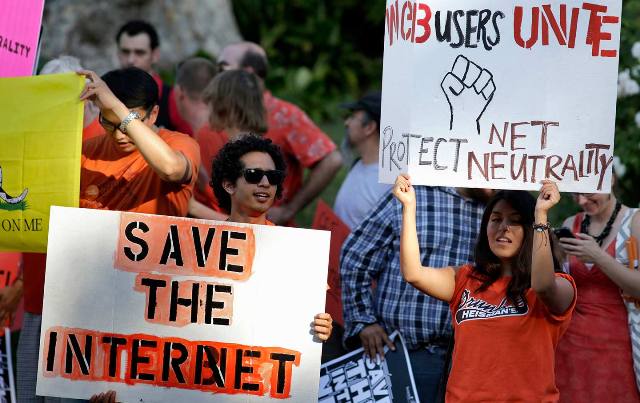 Federal Communications Commission (FCC) Chairman Ajit Pai and his team voted in favor of reversing FCC’s 2015 utility-style regulation of broadband Internet access service.
Federal Communications Commission (FCC) Chairman Ajit Pai and his team voted in favor of reversing FCC’s 2015 utility-style regulation of broadband Internet access service.
Scrapping Net Neutrality guidelines introduced during the US President Barack Obama’s regime, the Donald Trump administration ensured that Verizon, AT&T, Comcast, among others, will continue to make investment in broadband infrastructure.
Content providers such as Facebook, Google, YouTube, Amazon, among others, will be happy about the new FCC rule because they are big. Small content companies need the support of the long pipes of huge ISPs to reach out to broadband users. Twitter and Netflix supported the old net neutrality guidelines.
Today’s FCC is dominated by President Donald Trump’s nominated team. Chairman Pai, Commissioners O’Rielly and Carr approved FCC decision, while Commissioners Clyburn and Rosenworcel dissented.
The real question: will the next FCC bring back the old net neutrality guidelines under a new administration. May be a new president, who just opposes Donald Trump, can bring new net neutrality guidelines.
2017 guidelines
Today’s development means that the U.S. is moving from Title II to Title I. “By returning to the Title I framework, we are helping consumers and promoting competition. Broadband providers will have stronger incentives to build networks, especially in unserved areas, and to upgrade networks to gigabit speeds and 5G,” Ajit Pai said.
FCC said that this means there will be more competition among broadband providers — paving way for an open Internet. It also means more ways that startups and tech giants alike can deliver applications and content to more users.
FCC aims to promote robust transparency among ISPs than existed three years ago. ISPs need to disclose a variety of business practices, and the failure to do so subjects them to enforcement action. This transparency rule will ensure that consumers know what they’re buying and startups get information they need as they develop new products and services.
Moreover, the latest FCC guideline empowers Federal Trade Commission to ensure that consumers and competition are protected. Two years ago, the Title II Order stripped the FTC of its jurisdiction over broadband providers. FTC will again have the authority to take action against Internet service providers that engage in anticompetitive, unfair, or deceptive acts.
FCC action
FCC restores the classification of broadband Internet access service as an “information service” under Title I of the Communications Act.
FCC reinstates the classification of mobile broadband Internet access service as a private mobile service.
FCC noticed that the regulatory uncertainty created by utility-style Title II regulation has reduced ISP investment in networks, as well as hampered innovation, particularly among small ISPs serving rural consumers.
FCC will ask all ISPs to disclose information about their business practices to consumers, entrepreneurs, and the Commission, including any blocking, throttling, paid prioritization, or affiliated prioritization. What will be the action of FTC against any blocking, throttling, paid prioritization, or affiliated prioritization? FCC did not answer these questions.
Industry reaction
Jaime Fink, co-founder and CPO at Mimosa Networks, said: “Without any competition and no guarantee of net neutrality, there is little pressure on the mega-ISPs to compete on price, improve their networks and ensure fair treatment to all types of traffic. This must change.”
Since extending fiber to the majority of homes in the US is not cost-effective, new wireless technologies should be considered as an alternative. This approach enables competitive service providers to rapidly bypass the cable and DSL monopolies to challenge the mega-ISPs.
This is only possible if the FCC takes action to open the radio airwaves fairly to all ISPs. A reform in radio spectrum policy will prove to be the best solution to foster competition, extend broadband across the digital divide, and protect American consumers.
Baburajan K
